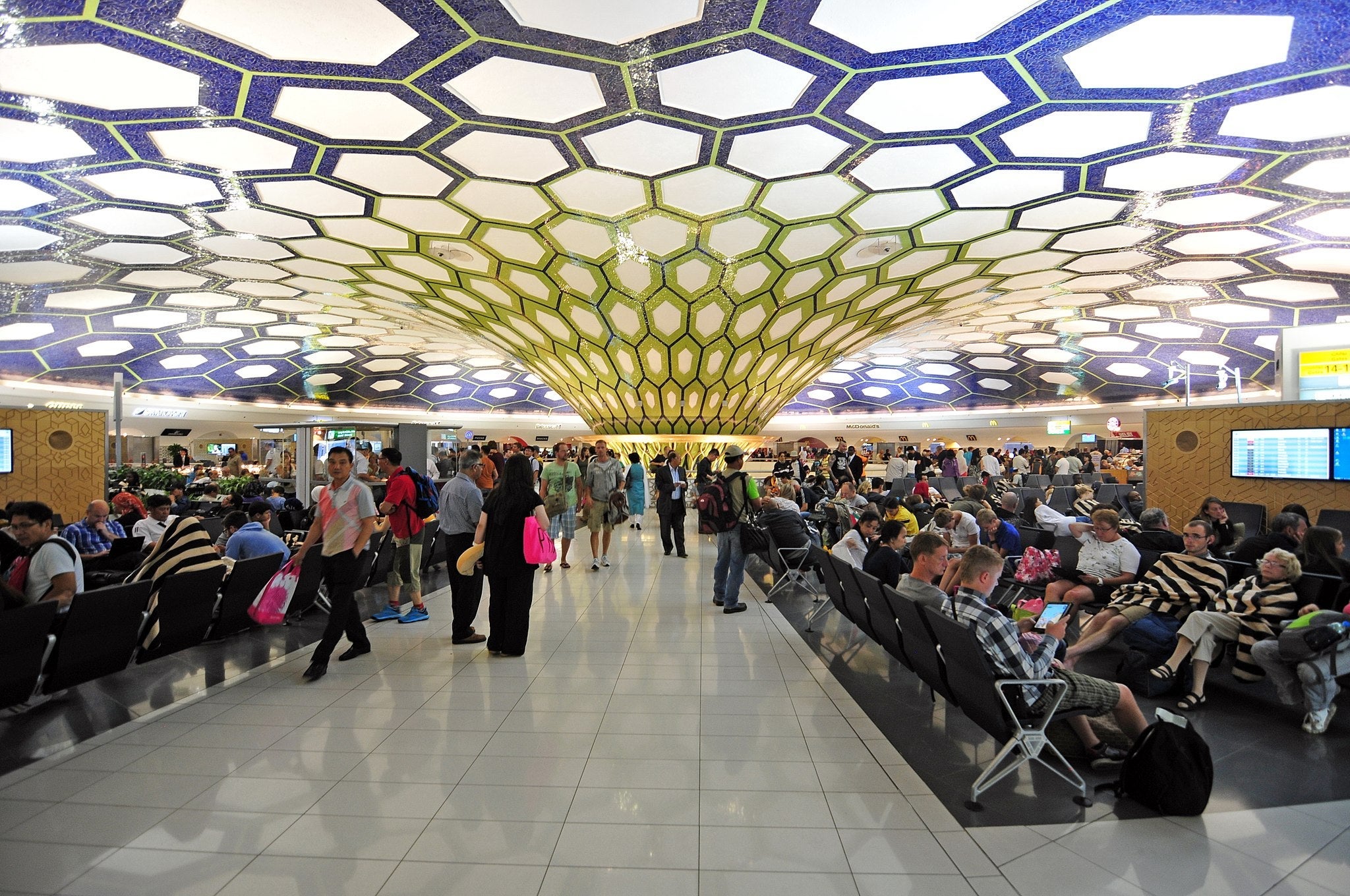Cabin Electronics Ban Lifted on Flights From Abu Dhabi
Etihad Airways announced today that the cabin electronics ban has been lifted on all US-bound flights departing from Abu Dhabi (AUH) airport. Effective immediately, passengers may begin bringing laptops and other portable electronic devices on board with them when departing on flights from the United Arab Emirates capital.
The change is a result of recent rules put in place by the US Department of Homeland Security (DHS), which earlier this week announced a set of enhanced security measures that airports could implement in order to avoid being covered by the ban. Since Abu Dhabi has an existing US Customs and Border Protection pre-clearance facility, it's not surprising that it's the first airport able to meet the new security procedures.

The lifting of the ban at Abu Dhabi will primarily benefit Etihad, which began informing its customers about the policy change this morning. The city serves as the airline's primary hub in the region, with daily nonstop flights to five US destinations — New York (JFK), Washington, D.C. (IAD), Chicago (ORD), Dallas (DFW) and Los Angeles (LAX). In addition, the airport is one of the world's busiest international hubs, with more than 80 airlines serving over 100 destinations.
The cabin electronics ban was originally implemented in March at 10 airports across eight countries in the Middle East and Africa due to heightened security concerns following an incident aboard a flight between Mogadishu, Somalia, and Djibouti City, Djibouti, in which a bomb built into a laptop computer exploded and blew a hole in the main fuselage of the aircraft. After the ban was put in place, there were regular reports that it could be expanded to include flights departing from European airports as well, but that option is now unlikely for the vast majority of airports that will be able to implement the enhanced security procedures.
There has not yet been any indication of changes at either Dubai (DXB) or Doha (DOH), which are the respective hubs of Emirates and Qatar, Etihad's main Middle Eastern competitors. The latter is currently experiencing unrelated restrictions of much of its airspace by its neighbors, heavily constraining the volume of traffic it can accommodate in and out of Doha.
H/T: Associated Press via New York Daily News

TPG featured card
at Capital One's secure site
Terms & restrictions apply. See rates & fees.
| 5X miles | Earn 5X miles on hotels, vacation rentals and rental cars booked through Capital One Travel |
| 2X miles | Earn unlimited 2X miles on every purchase, every day |
Pros
- Stellar welcome offer of 75,000 miles after spending $4,000 on purchases in the first three months from account opening. Plus, a $250 Capital One Travel credit to use in your first cardholder year upon account opening.
- You'll earn 2 miles per dollar on every purchase, which means you won't have to worry about memorizing bonus categories
- Rewards are versatile and can be redeemed for a statement credit or transferred to Capital One’s transfer partners
Cons
- Highest bonus-earning categories only on travel booked via Capital One Travel
- LIMITED-TIME OFFER: Enjoy $250 to use on Capital One Travel in your first cardholder year, plus earn 75,000 bonus miles once you spend $4,000 on purchases within the first 3 months from account opening - that’s equal to $1,000 in travel
- Earn unlimited 2X miles on every purchase, every day
- Earn 5X miles on hotels, vacation rentals and rental cars booked through Capital One Travel
- Miles won't expire for the life of the account and there's no limit to how many you can earn
- Receive up to a $120 credit for Global Entry or TSA PreCheck®
- Use your miles to get reimbursed for any travel purchase—or redeem by booking a trip through Capital One Travel
- Enjoy a $50 experience credit and other premium benefits with every hotel and vacation rental booked from the Lifestyle Collection
- Transfer your miles to your choice of 15+ travel loyalty programs
- Top rated mobile app


